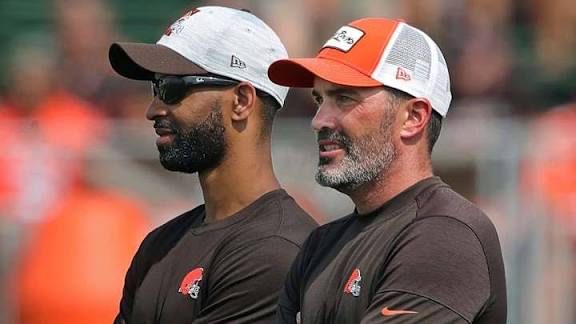Simone Biles and the case of women who have to put up with the harmful question of whether they are pregnant
Various celebrities have not hesitated to raise their voice against those who have asked them if they’re with child. We speak with an actress and two experts about the hurt the question can cause
Simone Biles at the World Artistic Gymnastics
Simone Biles is the latest celebrity to use her social media to clarify why asking a woman if she is pregnant the moment she uploads a photograph showing a hint of volume around the waist is highly problematic. No matter how much time passes, it’s necessary to push back against this kind of query in order for its inappropriateness to permeate the collective discourse of a society that seems bent on providing commentary on the female body, and on bashing her privacy. When the Olympic medalist posted an image in support of her husband, Jonathan Owens, at New Jersey’s MetLife Stadium, numerous followers began to ask whether the athlete was pregnant. “I hate that I even have to address this, but please stop commenting on this photo or my Instagram in general about me being ‘pregnant,’” wrote Biles in response, in an Instagram story where the controversial image appeared alongside her words.
Spanish actress Andrea Duro just lived through a similar situation, after uploading an image in which she poses, sheathed in a fuchsia Victoria Collection dress, a photograph on which numerous users congratulated her on her pregnancy. “For not having a flat belly? Maybe you should stop asking this question. First of all, because you don’t know if the person you’re asking has some kind of problem, and it could make them insecure. Secondly, because you’re not going to have a flat belly all the time, for many reasons. And thirdly, because it’s not necessary … when the day comes that I’m going to be a mother (if I ever am) I’ll be the one to tell you,” said the actress. EL PAÍS reached out for comment from Duro to delve into the problematic question.
“I have no idea why we think we have the right to have an opinion on other people’s bodies. I don’t know if it’s cultural or if it’s even a way for people to feel better when someone they think is beautiful, or who they think has a nice body, gains weight for whatever reason, suddenly bringing them satisfaction. Since I know this is a toxic and negative thing that causes us harm, for some time I’ve tried to correct that behavior, and I make an effort not to comment on anyone’s body. I would feel bad about myself if I had to give my opinion about someone, and that possibly has to do with the fact that it is something I’ve lived with for a long time and that, as you can see, I continue to live with. It’s something that really hurts me,” says the actress.
Body-shaming: 1. Empathy: 0
Of course, these comments aren’t far from the body shaming that, unfortunately, forms part of celebrities’ day-to-day lives, and — why deny it? — those of women who aren’t famous, as well. “Those flat bellies we see on celebrities every day, and even shortly after giving birth, do not reflect the reality of the rest of women. Since we live in a society that constantly puts more importance on the body and thinness as the ideal of beauty, that question can impact women’s self-esteem, or even cause them to visualize their body in a distorted way. In fact, if you ask someone with fatphobia that question, their fear of getting fatter or being fat can increase. They can feel humiliated, mistreated and even ridiculed,” says Dr. Marta Sánchez-Dehesa.
Lady Gaga, Selena Gomez, Amy Schumer, Ashley Graham and Anne Hathaway are other famous women who have had to diffuse pregnancy rumors the moment an image has come to light in which their stomach was not absolutely flat. “I wanted to let you guys know I’m balls deep in another IVF cycle to save as many eggos as I possibly can and hopefully make some strong, healthy embryos,” the model Chrissy Teigen explained on her social media. “I humbly beg you to stop asking if I’m pregnant because while I know it’s said with excited, good intentions, it just kind of sucks to hear because I am the opposite of pregnant!” she concluded.
A similar situation was experienced by Kourtney Kardashian, who, upon observing that her comments were filled with commentary on her body and allusions to a possible pregnancy, not only silenced those who dared to violate her privacy, but also pointed out that in vitro fertilization and its consequences aren’t talked about enough. When someone commented on a photo of herself asking if she was pregnant, the Kardashian responded: “The after effects of IVF (I only acknowledge this comment because I do think it’s important to know how IVF affects women’s bodies and it’s not spoken about much)… Also, are we still asking women if they’re pregnant?”
We asked David González Gerpe, a psychologist who works at Ginemed fertility clinics, what effect this question can have on a woman who is having problems getting pregnant. “It could remind her of her reproductive inability or difficulty. Let’s not forget that problems in getting pregnant can often involve grief, and any issue that reminds us of this grief can cause great sadness and anguish. It should also be taken into account that infertility can damage one’s sense of femininity and increase maternal urges. Many women who dream of becoming pregnant, but who don’t succeed, may feel depressed and hopeless,” he says.
Duro thinks that questions about pregnancy, in the majority of cases, don’t come from bad intentions, but she stresses the harms they can cause among those who want to be a mother but who are having problems achieving it. “It doesn’t bother me because becoming a mother is not among my goals in life right now. If I have a child, it will be when I feel like it and feel capable of giving it a good life and a good emotional education. It’s a question that causes damage, because there are many women who want to be mothers and can’t. Only when you are very close to the person should you ask, but it is not a question that should be hurled at someone out of the blue. There are women who go through fertilization processes and so many treatments and suffer a lot. Of course, their bodies change with these processes,” says the actress.
We also can’t forget the possibility of the question carrying with it an implicit critique of women’s bodies. Psychologist González Gerpe thinks that it also reflects the existence of a normative vision of the human body and a difficulty in accepting diverse bodies. “It doesn’t take into account that in many cases, diverse bodies don’t have to do with self-care or healthy living habits. However, a woman who receives the question is likely to interpret it as criticism of her body, as she may feel that her physique is being interrogated,” he says. These questions are yet another case of body-shaming, and at the same time, they reinforce the idea that a woman of childbearing age has to be a mother, thus calling into question a woman’s freedom to choose whether or not to be one. “For the record, I am not pregnant. What I am is fed up. I’m fed up with the sport-like scrutiny and body-shaming that occurs daily under the guise of ‘journalism,’ the ‘First Amendment’ and ‘celebrity news,’” wrote Jennifer Aniston in The Huffington Post. “The objectification and scrutiny we put women through is absurd and disturbing. Is she pregnant? Is she eating too much? Has she let herself go?” wrote the actress.
To conclude, we ask Dr. Sánchez-Dehesa how to respond to this uncomfortable question, keeping in mind that Christmas is right around the corner, a time in which comments on the bodies of the females around the table, not to mention social and familial pressure, is imposed on those who are not mothers yet. It is not silly to keep a good artillery of prepared answers on hand. “You can answer in many ways or by giving an example, which may annoy the other person. Another tactic is to take the opposite approach, i.e., to answer in a positive way to the person who made the comment, but use another adjective. Another way of answering is saying that you love to be reminded that you’re fat … The most reasonable approach is not to ignore the comment, and politely explain to the person how wrong it was and how it made you feel,” she says.
Sign up for our weekly newsletter to get more English-language news coverage from EL PAÍS USA Edition
MORE INFORMATION
‘Tis the season to listen to our relative’s comments about our bodies
MARÍA DEL MAR RAMÓN
Fatphobia on the screen: Society ‘would really prefer for fat people not to exist in public’
EL PAÍS expressly reserves the right to reproduce and use the works and other services accessible from this website by machine-readable media or other suitable means in accordance with Article 67.3 of


